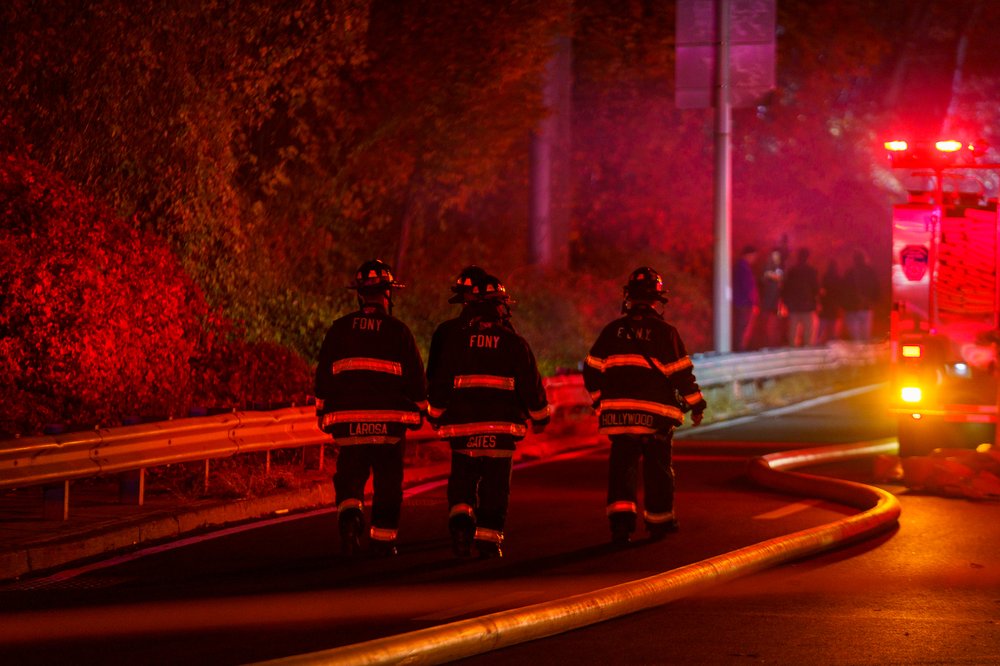NYC bans open flames, fireworks amid historic drought
Nov. 20, 2024, 4:31 p.m.
The move comes as the city battles brush fires and imposes water-saving measures to counter extreme dry conditions.

New Yorkers won’t be able to enjoy open flames or fireworks for the foreseeable future. Mayor Eric Adams has temporarily banned these activities as the city grapples with a historic drought.
Permits for open flames and fireworks in city parks have been canceled, while those issued for street or water-based events are under review according to the mayor.
It's the latest step in the city’s efforts to address drought conditions caused by a severe lack of rainfall. The FDNY responded to 217 brush fires in the first two weeks of November — the highest number ever recorded in such a short span, according to city officials. Homes around Jennings Creek, near New York state's border with New Jersey, were evacuated as a large fire continued to burn through the area.
The suspension of open flames and fireworks follows the city’s first drought warning in decades, issued on Monday. The warning requires city agencies to implement water-saving measures.
“The measures we’re announcing today will help prevent additional fires, protect our natural spaces and our air, and keep New Yorkers safe,” Adams said in a statement on Wednesday.
Outdoor fires were banned and New Yorkers were discouraged from grilling outdoors earlier this month. The MTA is also conserving water by cutting back on how often it cleans trains, buses, bridges and tunnels.
City residents are being urged to take shorter showers, reduce water usage, and clean up litter to prevent fires.
Meanwhile, the FDNY launched its first-ever brush fire task force on Sunday to tackle the growing number of fires driven by dry conditions.
Wildfires in NYC and NJ have hurt air quality. Here’s how to cope. NYC area forecast calls for much-needed rain this week, but not a ‘drought buster’